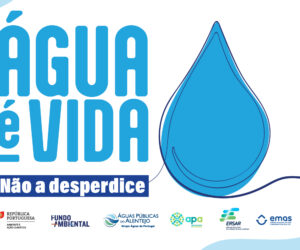Alqueva: Farmers against edia decisions on irrigated areas on a temporary basis.
farmers (Alqueva irrigators) show appalled by the decision of EDIA that last February that “watered areas outside the benefited area are considered irrigated areas on a temporary basis”.
 The completion of the Alqueva dam has created water availability expectations for all purposes and as agricultural constraints without one production factor, taking into account the irrigated area initially expected.
The completion of the Alqueva dam has created water availability expectations for all purposes and as agricultural constraints without one production factor, taking into account the irrigated area initially expected.
The introduction of the input is as important as water promoted the conversion of cultural systems, allowing its diversification and increased productivity with high investments, enabling farmers to have a wider range of strategic options for the markets, internal and external, and consequently to consumer demands.
With the entry into operation of the EFMA the agricultural sector in the region has created legitimate expectations with regard to ensuring the availability of water for irrigation. The implementation of these expectations resulted in the installation of thousands of hectares of irrigated crops, mostly permanent crops.
Some of the new areas watered also included areas, unofficially being benefited by hydro-agricultural exploitations, They are nearby and have potential for irrigation.
The areas outside the irrigation benefit area, It was always encouraged by edia, that made commitments to farmers, want to install permanent crops, or for irrigation of annual crops.
this practice, which allowed the edia best membership fees at the beginning of the exploitation of EFMA, led to many and huge investments have been planned considering what would be the future policy of edia.
Notwithstanding this, EDIA abruptly decided last February the following:
The areas outside the watered benefited area are considered areas watered on a temporary basis in accordance with the provisions and terms of irrigation projects approved by Decree-Law No. 269/82 of 10 July and other regulations approved by the National Irrigation Authority.
From that date the supply of water for irrigation on a temporary basis to new areas located outside the area benefit will only be solved for the installation of annual crops, unfeasible being the possibility of providing for installation of permanent crops in these areas.
limit to 3.000 m3/ha the allocation to provide for watering crops, in areas outside the benefited area. So, and farmers were allowed, a temporary basis, installing cultures that consume more than that allocation?
It is obvious that irrigating crops outside the area benefited, according to the law, set up a temporary basis the irrigation situation, however this is not a new circumstance, as indeed can be seen by the mentioned Decree date, for what was already applicable when the edia promoting irrigation on a temporary basis.
The imposition of a deadline for non-acceptance of watered areas outside the benefited area, without providing for the existence of any period which precede the entry into force of this measure, It came into question many planned investments, necessarily years in advance. This procedure inevitably will result in the occurrence of significant losses for the investors mentioned, the frustration of expectations created and, not less important, the loss of confidence in the project by everyone involved in this matter, in that it is open the precedent that the rules can be changed at any time without notice.
It seems perfectly justifiable in this context that the areas already watered a temporary basis are included in the benefit area, assuming the respective owners obligations of membership, more so, longer mean an increase in irrigated area by EFMA, no cost to the edia.
Unfortunately this region is accustomed to live cyclical drought periods with which irrigation projects have to know how to live and manage in the best way. In irrigation projects managed by Associations of Irrigators, in situations of water scarcity, are usually enacted in general meeting restraint measures consumer, but an attitude of understanding for the problems experienced by their peers that water outside the perimeter permanent crops, the irrigators attach to these areas one funding to maintain vital functions of plants.
Same would happen if the water management had already been concessioned to irrigators associations.
EDIA is now state that does not allow farmers to use water from their fire hydrant, the way they deem. We shall give an example, so you can better understand: A farm has, hypothetically, 50 ha covered by EFMA, estimated based on the initial calculations in order consumptions 6500 m3/He has. But if, instead of installing cultures who spend a lot of water (in this case you can use all the water from the fire hydrant irrigating the 50 He has), the farmer practicing other lower consumption, it seems logical that have every right to water more area, as a way to consume water from their fire hydrant, not spending more that you are entitled to, provided that an integrated environmental compliance framework.
EDIA also says that, because this new area is precarious (because it is outside of the irrigation area), the farmer can not make the. Definitely we do not agree with this position, because it breaks up a rule which had been established and encouraged.
Last, matter referred to, with the expansion of the EFMA area, we will have a very close area of 200.000 He has, so the current share of the dam, intended for irrigation (approximately 600.000.000 m3) will be insufficient, since the average annual consumption may not be confined to 3000 m3/He has. In this sense, it will be important to renegotiate, who right, that concession.


























